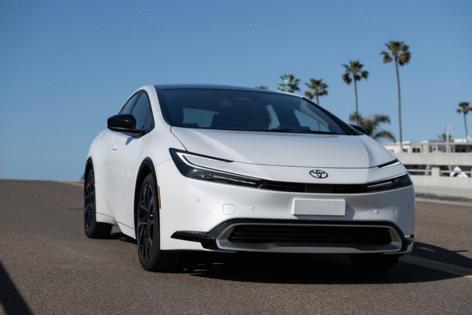Is a plug-in hybrid better than a fully electric vehicle?
Published in Automotive News
Like most things, the answer to whether one car is better than another depends on what you’re looking for.
That’s probably disappointing to hear. So it goes. This isn’t a cut-and-dry issue.
What’s the problem in the first place, you might ask? Internal combustion engines. You put in gasoline (or diesel), the fuel combusts, pushing pistons back and forth, and voilà, we’ve got a moving vehicle.
Combusting fossil fuels also churns out greenhouse gas emissions, warms the atmosphere and exacerbates climate change.
That, in a nutshell, is the problem. So, how do we reduce (or eliminate) these greenhouse gasses while still producing that motion that, ya know, gets us from home to work, to day care, to the grocery store, to our next adventure?
It’s an increasingly pertinent question, since the sale of hybrids, plug-in hybrids and battery-operated vehicles continues to climb. Those three options made up more than 16% of all vehicles sold last year, up from less than 13% in 2022, according to the U.S. Energy Information Administration. Of the three, plug-ins saw the biggest jump, Bloomberg reported, with an 83% increase in sales, compared to 21% with fully electric vehicles.
What are hybrids, plug-ins and electric vehicles?
A hybrid vehicle operates on both gas and a battery. The battery, of course, relies on electricity so there’s none of that pesky combustion when it’s in use. These vehicles rely on gas for the majority of their time in use but capture energy from their momentum to charge a battery within so they can also lean on electricity some of the time, therefore cutting emissions.
A plug-in hybrid uses the same concept except it boasts a larger battery and owners can plug it in. This way, it’s less dependent on gas to generate an electrical charge and can cut emissions even further.
And a fully electric vehicle — or battery-electric vehicle, some call them — relies entirely on electricity.
...continued
©2024 The Seattle Times. Visit seattletimes.com. Distributed by Tribune Content Agency, LLC.







Comments